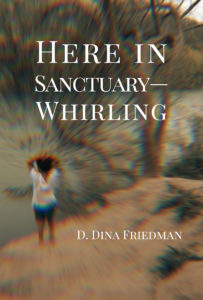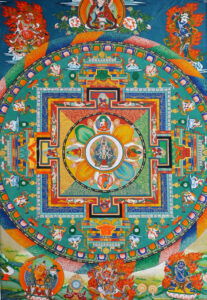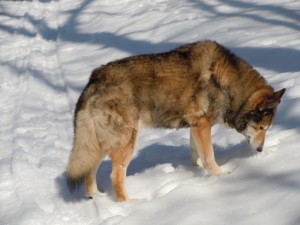For the past five years, I’ve done a self-reflective practice during the month of Elul, the 29 days preceding the Jewish New Year (which we celebrated on October 2-4 this year) where I focus intensely on my aspirations for the coming year, as well as my current short-comings, places where I’ve “missed the mark” in who I want to be as a person. During that month, I try to journal more than I usually do, often in response to inspirational readings and self-reflective questions I find on on-line, or books written by spiritual leaders in various traditions.

Cathryn Lavery cathrynlavery, CC0, via Wikimedia Commons
What comes through loud and clear, no matter how much (or how little) I journal, or what I choose to read, is that forgiveness—especially self-forgiveness–lies at the heart of personal growth. Even when I may be regretting something I’ve done that may have hurt someone else, and feel compelled to ask their forgiveness, I find that I can’t let the incident go until I’ve forgiven myself.
Forgiveness is a hallmark of many faith traditions, but even those of us who don’t follow a strict religious path (and I include myself in that category as a mostly secular Jew), can incorporate it into our personal growth plan. In fact, forgiveness can be kryptonite to the nudgy inner judge. What would our lives be like if every time that nasty voice reared its ugly head with some critical, self-deprecating comment, you simply answered by smiling and saying, yes, but I’ve forgiven myself for this.
The flip side of forgiveness is aspirations. When I went through old papers a few weeks ago, in attempt to create a more sacred space (while practicing forgiving myself for my messiness!) I was touched to find a journal entry from the past secular New Year in January. I wrote:
I was (am) a writer who is setting even deeper roots in a community of writers. The past year brought out that it is ok to be successful. That I have a voice that matters. That others have a voice that matters. That it’s important to me to nurture other people’s voices as well as my own. I value community. I stand for expression and an artistic standard that I would like to encourage others to reach for, and what I would like to keep improving in myself. I want to communicate what deeply matters—to humans, and to the world. My writing is now central to my life. It is what I am.
I followed this with a list of wishes. Some were pie-in-the-sky, like getting a story from Immigrants optioned into a movie. Others were possible, but not likely to happen, such as getting an agent who believed in me and my work and saw it as more than a commodity. But what stood out was this:
My biggest hope was to be taken seriously by everyone as a real writer whose craft is at standard and whose art and messages matter. I would like to be seen by others as a person of integrity and depth whose words and perspectives matter.
This is my New Year’s wish for all of you–in whatever you do. May your words, images, music, movement, actions, thoughts and perspectives matter.
Shanah Tovah!

Williamsburg Postcard Company, New York, 1920




 One of my favorite suggestions (and a practice I already regularly engage in) is walking in nature. I learned this from my husky-shepherd, Lefty, who quickly made it clear that the key to keeping him calm was a long off-leash walk in the woods every day. I found this break so nourishing, I’ve continued the practice. Even though he’s been gone for 12 years, I make a point of walking daily in all kinds of weather. And when I need an extra nudge to get my tired or tense torso out the door, I channel the ghost of my four-legged personal trainer, remembering that even at the very end of his life, he’d battle his own demons of arthritis, fatigue and lethargy for the joy of being in the woods.
One of my favorite suggestions (and a practice I already regularly engage in) is walking in nature. I learned this from my husky-shepherd, Lefty, who quickly made it clear that the key to keeping him calm was a long off-leash walk in the woods every day. I found this break so nourishing, I’ve continued the practice. Even though he’s been gone for 12 years, I make a point of walking daily in all kinds of weather. And when I need an extra nudge to get my tired or tense torso out the door, I channel the ghost of my four-legged personal trainer, remembering that even at the very end of his life, he’d battle his own demons of arthritis, fatigue and lethargy for the joy of being in the woods.